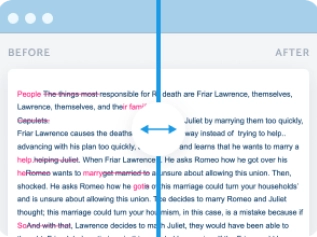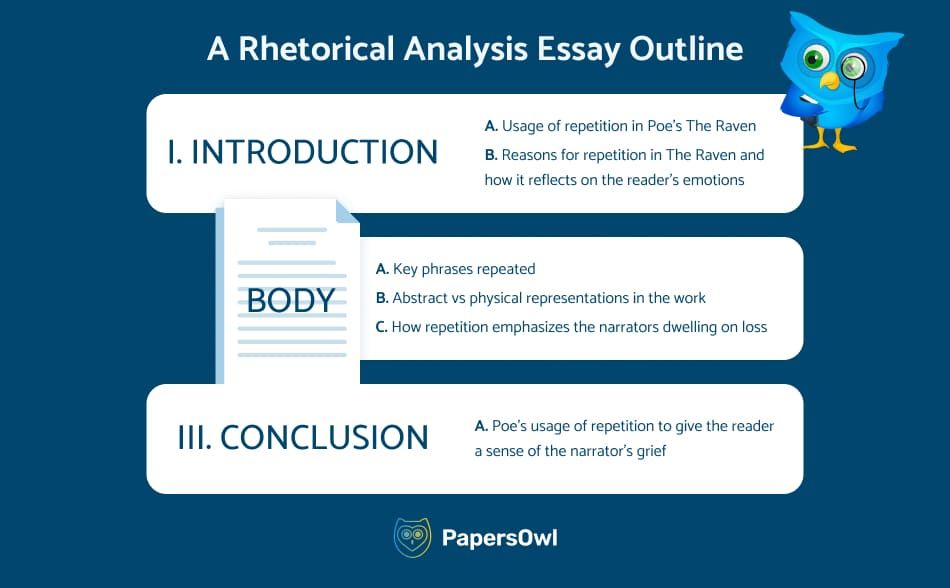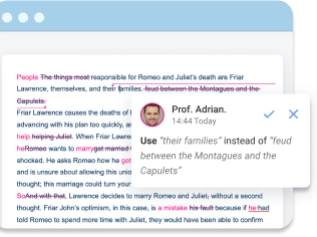How To Write Rhetorical Analysis Essay?
Table of contents
- 1 What is a Rhetorical Analysis Essay?
- 2 What are the Three Rhetorical Strategies?
- 3 How To Choose a Topic For a Rhetorical Analysis Essay
- 4 Step-By-Step Guide On How To Write A Rhetorical Analysis Essay
- 5 Rhetorical Analysis Paper Outline
- 6 Rhetorical Analysis Essay Tips
- 7 Main Questions of Rhetorical Analysis Essay
Are you expected to write a rhetorical analysis essay but need to know how? It is not the easiest type of essay. Still, we will give you a complete guide to master it: from its definition to the well-known rhetorical strategies and detailed instructions, along with hints that will facilitate the writing. Since this kind of paper is frequent and complex, this article will allow you to clarify how to choose the right topic and excel at this task quickly. Keep reading to learn how to write a remarkable rhetorical analysis essay.
What is a Rhetorical Analysis Essay?
Before anything else, we need to realize the main characteristics of a rhetorical analysis essay. This type of discourse is intended to persuade the reader or the listener. Contrary to the most common type of essay, rhetorical essays center on the composition of arguments rather than agreeing or disagreeing with them. It is supposed to motivate or inspire by carefully choosing words and intentions. For this reason, this type of writing is prevalent in films and books due to its descriptive and alluring nature. Seeing that these essays require more time and a thorough grasp of their purpose, many students turn to write my essay service as a tool for completing these assignments. Take into consideration the way that the author discloses the content so that the process of writing will become simpler for you.
What are the Three Rhetorical Strategies?
Aristotle conceived a theory that, although it was thought of many centuries ago, rhetoricians practice to this very day, called the Rhetorical Triangle. This triangle contains three aspects that will determine the text balance and the reader’s persuasion, according to the objective of the essay that you are writing. Read ahead to find out what these three appeals are, their primary qualities, examples, and what they serve for. To achieve a successful rhetorical analysis essay, you ought to be aware of this.
- Rhetorical Strategy 1: Ethos
Also called the ethical appeal, it is related to the effectiveness of the author’s speech in terms of knowledge. If what the author states sound plausible, he will be considered an expert on the matter. For instance, if the writer is versed in literature, his thesis and affirmations will be strongly trusted. - Rhetorical Strategy 2: Pathos
As an emotional appeal, it captivates the reader or the audience by affecting their emotions. If, for example, you pay to write essay, the author will appeal to your convictions and values to provoke a reaction. Rhetoricians that apply this strategy tend to incite intense feelings, such as rage or compassion, in pursuance of a deep bond with the readers. - Rhetorical Strategy 3: Logos
Also called a logical appeal, it interests the reader with rational arguments. This strategy focuses on the message or the content, meaning the reason behind the ideas. It is the most general and widespread technique in the intellectual field, as it’s proven effective in appealing to the reader’s common sense. Intrinsically linked to the content, it is essential to define this strategy in your essay.

How To Choose a Topic For a Rhetorical Analysis Essay
When deciding on a topic for your rhetorical essay, whether it’s for philosophy or literature, your tutor will guide you in what and where to focus on when doing the research. The important part is that the sources you look at are connected to your class subjects. Both marketing and arts take advantage of this type of rhetorical analysis essay, especially when the paper is visual: one may bring attention to examining a particular color design to conclude such tone selection. To give you an idea of other instances:
- A rhetorical analysis of a Renaissance Painting
- A presidential debate
- A poem
- Or a play script

Step-By-Step Guide On How To Write A Rhetorical Analysis Essay
If you aim to master the rhetorical analysis essay composition, look at the following instructions we have prepared for you that will allow you to make a rhetorical analysis essay outline and begin writing. Before starting to write your essay, a tip for smoothing the way is to review diverse potential essay themes before you pick one. By choosing a topic you know about, for example, if you have read about it before or related to one of your hobbies or aspirations, the ideas and content will come naturally to your mind. Check out this step-by-step guide to learn exactly what and how to write.
- Collect Information
Rhetorical analysis essays typically comprise a good amount of facts, statistics, and evidence; hence, with that in mind, you want to start the research immediately. Filling up a five-paragraph essay outline may take some time, but it will save you plenty of hours afterward when you begin the writing phase. A very effective tool to gather all the required information in an organized system for brainstorming is called SOAPSTone. It refers to the Speaker, Occasion, Audience, Purpose, Subject, and Tone. It intends to lead to a series of inquiries when studying a piece of literature or another subject, which will clear the way into the content you will approach.
✏️Example:
Who is the targeted reader? (audience)
- Check the Appeals
After you have collected enough information, define the three appeals we described before and place them accurately throughout the text. Every text should include all three strategies for credibility, sentiment, and logic. Equally addressing every one of the appeals will clarify the topics you are supposed to review in the essay. Another critical point to remember is to start by looking over the paper’s heading to figure out the theme and, thus, the content projection.
✏️Example:
The author’s credentials and diploma are disclosed in the paper (ethos).
- Identify Details And Style Choices
Here you should handle a considerable amount of specific information that the author employed to make his writing the way it is, meaning getting a good grasp on the author’s vocabulary, style, and narrative. Your essay will be as outstanding as a result of this understanding.
✏️Example:
Once, after having met a group of people, it turned out that one of them became friends with me.
- Start With Analysis
This is the moment for you to brainstorm to find as many details as possible to incorporate into the essay. When you collect all the information needed, the writing will begin, and you will have a clear guide. - Write Introduction
In the length of a paragraph, describe the primary insights and objectives that will be comprehensively addressed in the body of your rhetorical analysis essay. - Start With Thesis Statement
Right at the end of your introductory paragraph, you will write the essay’s thesis, which is the one phrase that compresses the main statement and the objective of the paper. - Write Body Paragraphs
This segment usually contains three branches that, independently from one another, specify the essay’s main arguments. Make sure to merge facts and insights, bringing the most effective and well-founded notions to reinforce the main statement of your paper. Also, beginning each paragraph with the most relevant idea, followed by the specifics and secondary information, called the Inverted Pyramid style in journalism, is another method for writing the body content. Be assertive when organizing the ideas so the text reads effortlessly through, preserving significant findings and removing the irrelevant ones. The reader will then enjoy reading a professionally written article. Now, it is time to wrap up with a conclusion. - Complete With The Conclusion
Finish up your rhetorical analysis essay with a roundup that can include additional insights or persuade the reader to do or react a certain way.
- Free unlimited checks
- All common file formats
- Accurate results
- Intuitive interface

Rhetorical Analysis Paper Outline
Were you assigned a material to analyze, or do you have free rein to choose your own? No matter, follow these steps, and you’re sure to be well on your way to knocking out your assignment and may even have a bit of fun in the process. So once you have your topic, the first is to organize your rhetorical strategies essay. To build your essay structure, you need to siphon out the meaning of the author’s work. You can start to choose quotes for an essay to get a basis to build off.

Rhetorical Analysis Introduction
One of the most important steps to having an effective text is to make it interesting. Pull your audience in with a strong, attention-grabbing hook. Even if you are reviewing dead boring material, pull some meaning out of the grave to make it interesting. Use your inner philologist to determine why particular words were used and open new perspectives for the reader to discover. Once hooked, give some background information on the material and drop your thesis statement to flow into the body of your text. Now it’s time to start a literary analysis essay. If you follow these steps properly, your statement should flow into the next part.
Rhetorical Analysis Body Paragraphs
Open the body with the most interesting perspectives you offer. If your paper is particularly long, get into a good rhythm of peaks and valleys. Try to conceal the dryer elements of your work by pairing them with more interesting parts. This will prevent lulls in your paper. Furthermore, any claims you make should be supported by evidence. Do keep your points succinct and offer detailed explanations for anything that could be ambiguous. If you’re doing an ap language and composition rhetorical analysis, be sure your writing skills are up to scratch to get a good grade. If you struggle with writing, or you’re just not interested in the class, appeal to the help of a college application essay writing service to get the job done for you. You’ll appreciate the immediate relief of a bought and paid for paper rather than sweating over a tough assignment.
Rhetorical Analysis Summary and Conclusion
No rhetorical outline is complete without a proper ending. A tip from the pros is not to leave your audience hanging. Draw out the strengths of your text and key points to remember. A great conclusion will reinforce the value of your analysis and give the readers something to take home with them. Give a synopsis of your thesis statement and how the body of your text followed through to support your analysis.
The outline for a rhetorical analysis essay is a document that describes the key point ideas to be inserted in writing. Once you create an outline that lays out all relevant subjects and topics that will be part of a paper, you may apply this rhetorical analysis essay template to any other future rhetorical essay by adjusting it to each theme. This draft should contain every argument and assertion that will be developed in the body of the paper. Start by defining the outline every time you ought to write a rhetorical analysis essay, and we guarantee that composing this type of essay will be more expeditious and simpler.
- Introduction
A) SOAPS
B) Thesis - Paragraph 1
A) Main Sentence
B) Evidence
C) Analysis - Paragraph 2
A) Main Sentence
B) Evidence
C) Analysis - Paragraph 3
A) Main Sentence
B) Evidence
C) Analysis - Conclusion

Rhetorical Analysis Essay Tips
If you want to deliver a rhetorical analysis essay that is remarkably written, pay attention to the tips that we provide you with in this section. Now that you have learned the foundations of rhetorical essays, the relevance of a well-supported thesis, and reviewed a rhetorical analysis outline example, you may continue with some hints to help you finish smoothly. You can apply these tips to any topic or theme, so aim to write a mistake-free essay. Here are the promised tips:
-
Practice
It is no secret that practice makes perfect. In this type of situation, when writing an essay, it is better to choose a topic that you are comfortable with, for example, a book or a movie that you like. That way, you will turn a rather complex task into a simpler one since you can contribute with many insights, delivering a distinguished paper. -
Choose precise words
Take advantage of a versed vocabulary for that specific theme. The proper terminology and formality can have a significant effect on the expertise of your content. -
Use proper format
Your class teacher will hand out the essay requirements regarding appropriate structure and formatting. The best advice is to comply with the mandatory formatting structure. Find these precise stipulations before writing the first ideas so you can save time. -
Cite properly
It is mandatory to include every source referenced and every quotation. They must be well-referenced in the in-text citations and the reference or bibliography section. If you fail to do so, your work will be labeled as plagiarized material. -
Finish with strong claims
Just like when watching a movie, you want your attention to be appealed to; it doesn’t matter if it’s out of suspense or not, as long as you are captivated. This can happen with a well-approached essay, and there are plenty of websites to check a rhetorical analysis conclusion example to get an idea of how to write it.

Main Questions of Rhetorical Analysis Essay
The following table will facilitate the brainstorming phase and key points validation.
| What has the author done? | Why has he done it? |
| Thesis of the paper | Why was this thesis chosen? |
| What was the intention behind the content? | Do you think this intention worked? |
| What is the target audience? | What is the purpose of selecting that specific audience? |
| How was the essay arranged? | Does it work the way it was organized? What was the reason behind this format? |
| What did the writer decide about vocabulary, mood, and formality? | Why did the author choose this style? Does it have the desired impact? |
| What is the structure like in terms of length? Is the style of the author noticeable? | Does the chosen structure modify the rhetoric? |
| Are there speeches, references, or quotes? | What value do they add, and why were they included? |
Now you are ready to excel at this assignment after reviewing a thorough explanation of a rhetorical analysis outline and how to achieve a professional and well-defined rhetorical paper that your teacher will be proud to read. Make sure to choose a relevant topic, plan the rhetorical essay outline, use our brainstorming chart, set out the rhetorical strategies very clearly, and abide by our tips to avoid mistakes. Review this guide when writing your next rhetorical analysis; you will finish off like an expert.






